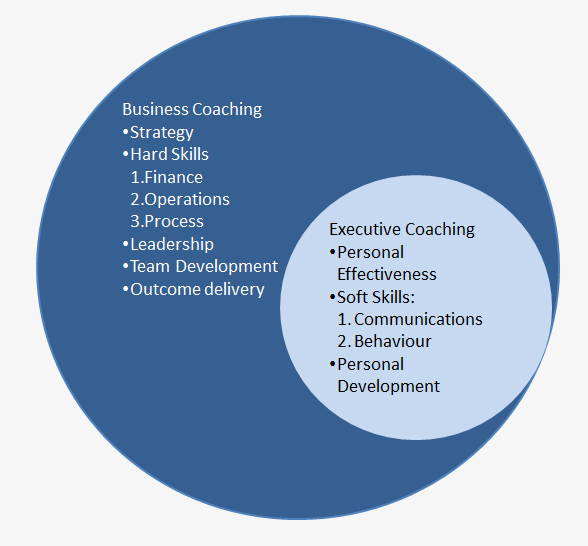Anyone contemplating using a coach in relation to their business would be wondering what are the differences between business and executive coaching. Whilsts there is a great deal of commonality between business and executive coaching the focus is generally quite different. Which will be best for you? A lot depends on your business and the situation that your business is in. How do you know which of the two is going to be more beneficial? Hopefully by the time you read this article you’ll be better informed and if not, this is a question that you should be putting to any coach that you are considering hiring.
What is coaching?
Coaching is a partnership that provokes thought and creativity and inspires maximum personal and professional potential.
How does coaching work?
Just like in sports, even the most proficient and accomplished players will always do better under with the support ad guidance of a coach. This concept has been in operation four almost 200 years And no seriously minded sports person would dream of competing without a coach. In fact famous sports people like Tiger Woods, have openly admitted that they owe a great deal of their success to their coach. The same is true in the business context.
All forms of coaching operate along very similar lines as outlined below. Roughly speaking the process comprises:
- Getting very clear about where you want to be and the gap that exist between that point and where you are now.
- Establishing clear goals and a timeline for achieving those goals
- Developing a plan of action that when followed wall produce the desired end goals
- Committing to the actions and behaviours needed to fulfill the actions required by the plan
The coach will help the client gain sufficient clarity, keep the process moving and keep the client accountable to the goals that they have set.
Executive coaching
The primary objective of executive coaching is to help the client to perform better as a ‘business executive’. The goals that are set are usually related to personal effectiveness, business skill development, personal growth, interpersonal skill development, behaviour and leadership development. In many cases the coaching initiative is sponsored by the executive’s superior, or the business owner, to help develop skills or to groom an executive for a higher position. That’s not to say a business owner or chief executive officer could not be a candidate for executive coaching themselves. In some cases a business owner or CEO will engage an executive coach on their own behalf, to help them work through specific aspects or challenges to help them to become better at their job as a business leader.

Fig 1 Executive Coaching is a subset of Business Coaching
Business coaching
The primary objective of business coaching is to help the client’s business improve and to deliver greater profits and/or growth. In this case a lot of emphasis is placed on the internal workings of the business itself. For instance there is a lot of emphasis on “hard skills” such as strategy, operations and financials, as these are tightly coupled with the business’s bottom line results.
Nevertheless, in order for a business to be more effective and achieve its goals, in many cases it is the business owner or the CEO in their capacity as a company executive, who’s knowledge and effectiveness are pivotal and the subject of coaching. So in most cases, many of the topics that are dealt with within the context of executive coaching, are required within the context of business coaching as well. In practise, there is an approximate 80:20 split in terms of focus and of course this will vary from case to case. In some cases there could be no executive coaching component at all required.
So how do you decide?
In some cases the business owner or CEO may be unclear about what type of coaching is required in terms of achieving a set of outcomes. In such a case, a conversation with a suitably experienced and qualified coach will quickly drill into the issues and result in clear guidance as to the best coaching modality to use.
Conclusion
The most important issue is not so much what type of coaching is required, but the extent to which coaching can help the business move forward, improve, and achieve its goals. Once this is recognised and coaching commenced, the specific requirements of the business will become evident and the emphasis of the coaching adapted and adjusted accordingly.
Whatever the specific type of coaching that is best suited to a business, coaching is a very powerful business improvement tool. Over the past 30 years, it has become an indispensable tool for many businesses to help them achieve a wide variety of goals, compete more effectively, be more profitable and accelerate their growth
Related articles:
Business coaching
Business Coaching: indispensable for business success

